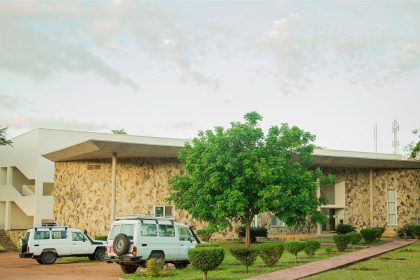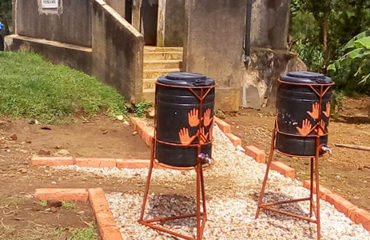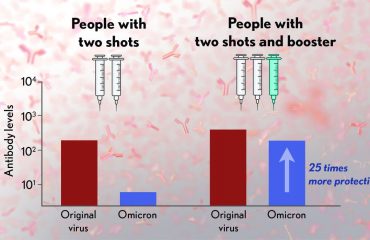
The Mwanza Intervention Trials Unit (MITU) based at the National Institute for Medical Research (NIMR) campus in Mwanza, (Tanzania) is a collaborative research unit of NIMR and the London School of Hygiene and Tropical Medicine (LSHTM). MITU’s mission is to contribute to improving health through the development and evaluation of interventions against HIV and other health problems by conducting research, including clinical trials, to the highest international standards; to enhance the capacity to carry out such research in Tanzania and the East African region; and to contribute to the translation of research findings into health policy.
MITU, in collaboration with LSHTM and five other African institutional partners, is part of the ENTRANT training fellowship programme which seeks to develop a critical mass of infectious disease epidemiologists to work with the Ministries of health and their academic and research partners, to prevent and respond to emerging outbreaks and public health emergencies. The programme, funded by the European & Developing Countries Clinical Trials Partnership (EDCTP), will support 15 African scientists over two academic years (2021-2023) to complete a one-year full-time MSc degree in Epidemiology at the LSHTM. At least two fellows will be from Tanzania. In addition to the MSc taught courses, fellows will also complete an LSHTM short- course on pandemic preparedness, response and research led by members of the Uk Public Health Rapid Support Team (UK-PHrSt) and a three-month MSc research project carried out in Tanzania.
The other African institutional partners collaborating in this consortium are:
- National Health Laboratory (NHL), Botswana
- Haramaya University (HU), Ethiopia
- University of Nairobi (UoN), Kenya
- MRC/UVRI & LSHTM Uganda Research Unit (MUL), Uganda
- ZAMBART Project Limited, Zambia
Award Details:
Eight places are available for 2021-22 academic year and each fellowship includes:
- 2021-22 tuition fees (at the overseas fee rate)
- Stipend (living allowance) of £16,800
- Return air travel to London
- An allowance for MSc research project expenses
- Support to attend conferences and networking events after completion of the MSc
To be eligible, candidates must:
a) Be a resident and national of Tanzania.
b) Hold a minimum of an upper second-class honours degree from a reputable university in Tanzania or other countries, or a registerable qualification in medicine, dentistry or veterinary medicine.
c) Be working with either the Ministry of Health, Community Development, Gender, Elderly and Children or at the Institutes of Public Health at Muhimbili University of Health and Allied Sciences (MUHAS), and Catholic University Health and Allied Sciences (CUHAS) or School of Public Health at Kilimanjaro Christian Medical College (KCM college), or Research Institutes at the National Institute for Medical Research (NIMR),Ifakara Health Institute (IHI) and Kilimanjaro Christian Research Institute (KCRI) or at the University of Dodoma. Applicant employer will need to provide a letter of support guaranteeing that the fellow will be released from work commitments for the full one-year period of the MSc, and that the fellow’s post or an equivalent role will be available for them to return to following completion of their studies. The letter should also express support for the fellow to have protected time (recommended one day per week for a 10-week period) to undertake the pandemic short course following the MSc.
d) Have at least 2 years and less than 15 years’ full-time equivalent work experience since completion of their first degree.
e) Be able to meet English language requirements for the LSHTM MSc Epidemiology specified here https://www.lshtm.ac.uk/sites/default/files/english language requirements policy.pdf
f) Be committed to continue working as a public health practitioner in Tanzania for a minimum of two years after completing their studies.
How to apply:
Candidates should complete their application through the online portal https://fellowship.lshtm.ac.uk/#/get- started. Applications will be accepted from 1st – 30th April 2021.
Please note:
The online application system includes a personal statement section. Candidates should use this section to give further details on their current role in public health and how they will be in a position to contribute to public health activities and disease outbreak preparedness and response activities following completion of the MSc. They should also set out their commitment to remain working as a public health practitioner in Tanzania for a minimum of two years after completing their studies.
Documents that must be uploaded as part of the application are listed below:
- Curriculum vitae
- Academic transcript
- Letter of support from current employer, including the information specified in point c) above.
Applications received after the closing date will not be considered. Shortlisted candidates will be interviewed via Zoom.
Support will not be given as a supplement to other funding, nor to students who have funding from other sources.
Enquiries
Find out more about the MSc in Epidemiology.
Informal enquiries concerning the fellowship can be made to jchangalucha@yahoo.com, saidi.kapiga@lshtm.ac.uk or Emily Webb.
Informal enquiries concerning the MSc can be made to the Programme Directors.
Find out more about visa requirements.






